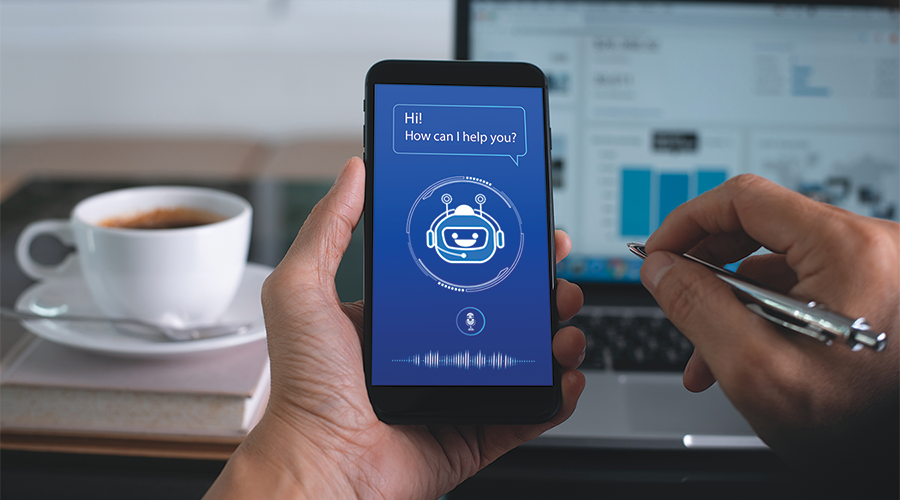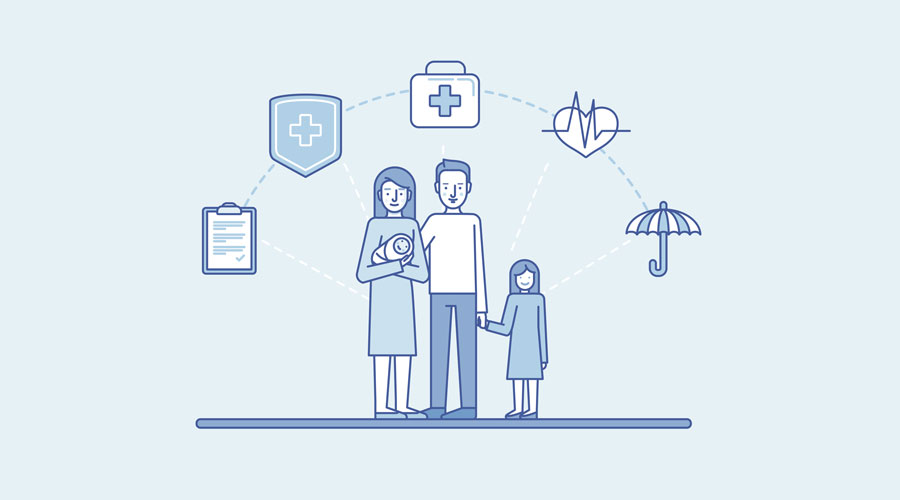As a busy community pharmacist, it can sometimes be a struggle to keep up with all your patients’ needs. Answering questions, scheduling appointments, and sending reminders are only a few areas that take up a lot of your time. There’s also the tracking of routine data and symptoms, creating medical records, and much more. That’s where artificial intelligence (AI) chatbots can help.
There are numerous advantages to having an AI chatbot. Not only does it provide an around-the-clock, constant source of interaction for your patients with the healthcare system, but patients feel confident with the chats due to the anonymity associated with them. The chatbot can provide personalized health advice and recommendations based on the patient’s symptoms and medical history. Plus, AI-powered platforms can provide easy access to information about healthcare products, such as OTC medications and food supplements. This can help your patients understand the potential benefits, any risks, and the correct way to use the products.
Here’s a full rundown on how medical chatbots can help your pharmacy and your patients:
Improved efficiency and lower costs
Chatbots (aka virtual assistants) handle the initial contact with patients. They do the asking and answering of routine questions that come up, and can recommend care options after users enter their symptoms. This saves money and manpower, yet accomplishes efficient screening.
Chatbots can also enable patients to schedule appointments and refill prescriptions. Additionally, they can help them get a second opinion on their diagnosis or treatment plan, if needed.
Around-the-clock availability
Patients may need urgent medical attention at times when healthcare advisors may not be available. Healthcare chatbots provide real-time assistance and are extremely helpful in situations like this. There are no wait times because AI answers all the questions patients and caregivers may have that don’t require a medical professional.
Healthcare counselor
A medical chatbot can also interact with patients who suffer from anxiety, depression, or even feelings of loneliness. The chatbot allows them to share their emotions without the fear of judgment. It also offers good advice.
Insurance help
Believe it or not, chatbots can help patients get their healthcare insurance claims approved quickly and without hassle. After all, they’ve been with your patient throughout their illness. They can help patients choose the most useful insurance policies for their medical conditions. They also save them time and money by shortening the process of claiming insurance and simplifying the payment process.
Data collection
With an AI chatbot, you can collect data on target customers (i.e. demographics, preferences, and purchasing habits) using surveys, sales data, and social media.
While healthcare chatbots are a wonderful way to help patients and customers connect with their healthcare providers, there are also some disadvantages to keep in mind. For instance, while chatbots are great for providing information, there is no real human interaction.
Human interaction is better than using a chatbot for several reasons. First, it can connect patients with a real person who can help them make decisions about their care. It also lets your patients take an active role in their own treatment, and doctors are given more opportunities to assess patients’ behaviors and symptoms.
A chatbot will work just fine if your patient’s trying to get help with something minor, such as an upset stomach or a flu bug. But if it’s something serious, they should talk to a real person. Many chatbots can help them connect with a healthcare professional through a live chat.
Another drawback with chatbots is the amount of limited information available. They’re designed to be simple and easy to use, so they only offer a small amount of data at any given time. So, if your patients are looking for an in-depth answer to a complex medical problem, they might get a bit flustered.
Over time, patients will start to trust chatbots more and more. But placing too much trust in them can be damaging because users can potentially be exposed to data hacking. Security concerns are one of the biggest disadvantages of healthcare chatbots. And while they’re still in the early stage of development, many security concerns need to be addressed before they can be used more widely.
Your Website Chatbot
Let your customers know you care about their needs. Here are some great ways customers can use your pharmacy chatbot:
Get prescriptions and refills
With a pharmacy chatbot, your customers will be able to transfer prescriptions or request refills. The chatbot will forward the prescription request to an agent to fulfill.
Learn prescription status
Using the patient’s reference number, the chatbot can quickly share the status of their prescription. It uses an application programming interface (API) integration to track the order status.
Talk to an agent
Some chatbots can forward the patient to an agent or pharmacist for emergencies or when they need to speak to someone face to face.
Get answers
A chatbot can help answer general questions patients may have regarding side effects or ingredients for a specific medication. Pharmacists can even send helpful studies and research documents that patients can download directly from the chat.
Send medication and appointment reminders
Your chatbot can be programmed to remind patients of upcoming appointments. This alone is one of the reasons why many healthcare organizations are considering adopting them.
The 10 Top Healthcare Chatbots of 2023
Woebot
This mental-health chatbot provides its users with cognitive-behavioral therapy (CBT) via a conversational interface. It provides personalized support and guidance for managing symptoms of anxiety, depression, and other mental-health conditions.
Babylon Health
Babylon Health chatbot offers a range of services, including symptom checking, triage, and virtual consultations with healthcare professionals. It uses AI and natural language processing (NLP) to provide personalized recommendations and treatment plans based on users’ symptoms and medical history. It also offers a range of health-monitoring tools, including fitness tracking and sleep monitoring.
Sensely
Sensley offers a virtual medical assistant to help patients manage their health and navigate the healthcare system. It uses AI and NLP to provide personalized support for medication management, appointment scheduling, and accessing health resources.
Florence
This chatbot monitors a user’s health, such as their body weight, mood, or menstruation. It assists them in achieving their objectives. Florence can also be programmed to locate the closest pharmacy or medical facility.
Cancer Chatbot
The Cancer Chatbot is dedicated to charitable causes. On Facebook Messenger, it’s useful for cancer patients, carers, friends, and family. It provides patients with a wealth of options, including free services and advice on chemotherapy. It also offers resources for carers and supports friends and relatives.
Gyant
This health chatbot prompts users to describe their symptoms before sending the information to physicians, who diagnose and issue prescriptions in real time. The service is available on Facebook Messenger and Alexa, but they hope to make it available on other messaging platforms, too.
Buoy Health
With Buoy Health, patients can look up their symptoms online or search the extensive database to determine what might be wrong with their health. The chatbot probes them about specifics of their medical condition and presents them with a range of options and doable next steps.
Suki
Suki offers voice-activated, AI-backed medical documentation solutions. It has a digital assistant that can record doctor-patient discussions, help clinicians take notes orally using natural language, and listen to them. It uses cloud and NLP technology.
Ada
This chatbot offers a symptom assessment tool to help patients determine the underlying cause of their symptoms. It uses AI and NLP to understand users’ symptoms and medical history, and provides personalized treatment and further evaluation recommendations.
Patientco
This healthcare chatbot offers a virtual billing assistant that helps patients manage their medical bills and insurance claims. It uses AI and NLP to understand patients’ billing questions and concerns, and provides personalized support for payment scheduling, insurance verification, and claim status updates.
(Source: www.botpenguin.com)
From the Magazine
This article was published in our quarterly print magazine, which covers relevant topics in greater depth featuring leading experts in the industry. Subscribe to receive the quarterly print issue in your mailbox. All registered independent pharmacies in the U.S. are eligible to receive a free subscription.
More articles from the September 2023 issue:
- All Eyes on EG.5.1
- Your Extraordinary Front End
- Hearing Aids vs. PSAPs
- Medication Adherence Programs
- DSCSA Deadline Looming
- Unsalable Products
- DIR Rule Changes
- AI Chatbots in Health Care
A Member-Owned Company Serving Independent Pharmacies
PBA Health is dedicated to helping independent pharmacies reach their full potential on the buy-side of their business. Founded and run by pharmacists, PBA Health serves independent pharmacies with group purchasing services, wholesaler contract negotiations, proprietary purchasing tools, and more.
An HDA member, PBA Health operates its own NABP-accredited warehouse with more than 6,000 SKUs, including brands, generics, narcotics CII-CV, cold-storage products, and over-the-counter (OTC) products — offering the lowest prices in the secondary market.












